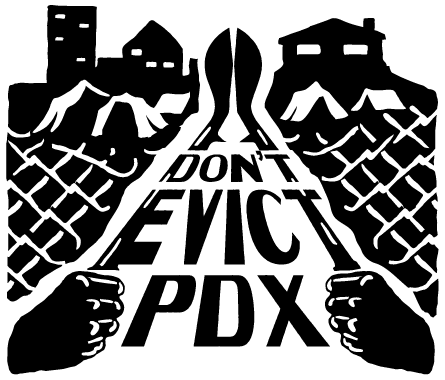I have been served with a “Complaint & Summons” from the court, what now?
This means that your landlord has filed a FED (Forcible Entry and Detainer) case with the Multnomah county circuit court and that you have an “active eviction” case open.
You should have received two documents:
The Complaint: which was filed out by the landlord or their lawyer explaining their argument for the eviction.
The Summons: which tells you the date/time/method of your First Appearance hearing.
Below we will walk you through what you can expect and prepare for in the court process. This page cannot cover all of the possibilities and outcomes, this is a general overview. If you would like to speak with us about your case in particular, please contact us.
First Appearance:
This is your first court appearance. The most important thing to do for this hearing is to SHOW UP! We know that the process can be overwhelming, triggering, or feel pointless and there are lots of good reasons not to trust the system, but if you do not show up to your first appearance, the judge will rule in favor of the party that does show up, which is almost always the landlord.
If the landlord shows up and the tenant does not, the judge will issue a default judgement. Even if the arguments the landlord is making are full of holes, lies, or straight up illegal, the landlord will win just by showing up.
If the tenant shows up and the landlord does not, ask the judge to dismiss the case. They are supposed to do this automatically, but don’t always. If your case gets called and the landlord or their lawyer isn’t there, speak up, ask the judge to dismiss the case.
Below we will talk about what happens if you weren’t able to appear in court and have a default judgement against you, what your options are. (See Motions)
If both parties show up, the judge will see if the parties can reach an agreement (also called a settlement) or if the case should be scheduled for a trial. This is the purpose of the first appearance, to see how the case will proceed. The case will not be decided this day, unless one side doesn’t show up.
Settlement or Stipulated Agreement:
One way that Landlord/Tenant cases can be closed is through an agreement between you and your landlord. These agreements are court enforced; basically the two parties are writing a tiny law that only applies to that landlord, that tenant, for that unit. The agreements can have any number terms, the landlords will often ask for a move out date, a payment schedule (but not during the moratorium), or for a change in behavior. Tenants can ask for maintenance repairs, a move out date of their choice, or other terms. Both parties must agree to all the terms. During the moratorium, we have noticed that landlords and their lawyers are not willing to negotiate, and are saying that their terms are the only valid ones. This is not true.
If you would like to discuss the pros and cons of coming to an agreement with your landlord, contact us.
Things to keep in mind:
The agreement is court enforceable. This means if the terms are not met, either party can bring the case back to court for a non-compliance hearing.
Don’t agree to something you can’t do.
